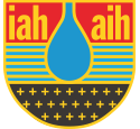Events
-
2 Jul - 27 Aug 2024 – Online
Python Masterclass: Advanced skills for hydrology
Python. This Masterclass is for Python users who want to advance their skills for hydrological data processing and modelling
Python is an ever-evolving programming language with endless possibilities. During this masterclass, attendees will learn about Python’s many aspects based on an interactive, case-based approach. The process of developing a code project will be broken into small modules that will be covered one step at a time over eight weeks.
This course is intended for hydro(geo)logists who already have experience with Python. It is aimed at practitioners and researchers who want to take their Python skills beyond the use of basic scripts. This course will provide you with a set of ready-to-use Python notebooks that can be adapted for a wide range of applications. This course covers a range of topics, including data analysis, visualisation, advanced optimisation, and modelling.
This exclusive course is designed to be offered live only. Registered participants will have access to the course material and resources for up to a month after the final session. Spaces are limited, so don't miss out - register now to secure your place!
Course Outcomes
In this Python Masterclass you will be equipped with the essential skills and knowledge needed to excel in water modelling. You will be able to:
- Use Python in Visual Studio Code;
- Create functions, classes and libraries;
- Develop custom hydrological models;
- Data visualization and parameter optimization;
- Collaborate using GitHub;
- Interface with QGIS.
By the end of this course you will have the ability to create sophisticated models, analyse complex data, and optimise your results for better performance.
Course Outline
Develop advanced skills in Python through a real-world case study on water modelling over the 8-week session. See below a detailed course outline.
Session 1: Establishing the Python landscape
This session will introduce the attendees to the various aspects of conda and setting up dedicated Python environments on your computer. It will look at Visual Studio Code and the integration with GitHub.
Session 2: DataFrames and GeoDataFrames
During this session we will download data from an online database and demonstrate how it can be imported in QGIS, using the libraries Pandas and GeoPandas. It will also feature a brief primer on the use of PyQGIS.
Session 3: Using Pandas to process time series
This session will be used on how Pandas can be used to process time series and combine data from different sources.
Session 4: Creating functions and classes
This session will be dedicated to creating functions and writing object-oriented code. Attention will be paid to creating docstrings, which are essential elements of all Python functions to document the code behaviour.
Session 5: Setting up a water balance model
Once all the data is in the right format, they can be imported into the water balance model. The model will be set up in a spreadsheet first, to make it easier to understand what happens once it is in Python.
Session 6: Model sensitivity analysis and optimization
All data and model parameters are uncertain. Using Python it is easy to explore the model sensitivity to these uncertainties. We will also look at some ways to optimize the model by best fitting the results to the measurements.
Session 7: Presentation of results
This session will look into different ways to visualize the data and the model results.
Session 8: Discussing programming problems
Throughout the course, attendees will be invited to suggest problems from their own work that we can collectively discuss and try to solve. We will select some cases to discuss during this final session of the course.
Format:
The course is delivered through units via the learning platform:
- 8 live and interactive sessions of 2 hours over eight weeks on Tuesday, 3-5pm Sydney Time
July 2, 9, 16 & 23 – 2024
~ Week break ~
August 6, 13, 20 & 27 – 2024
- Sessions are recorded & uploaded to the learning platform (LMS – within 48hrs after the session), if you cannot attend live;
- Pre-and-post-course materials to go through via the LMS;
- Exercises between the live sessions;
- Manual of the course and working model download/s;
- Ability to access all the online course materials for up to a month after the course. The pre-readings/videos and manual/s are available for ongoing learning.Price: 1495.00
Organised by Australian Water School.
 https://awschool.com.au/training/python-masterclass-for-hydrology/
https://awschool.com.au/training/python-masterclass-for-hydrology/  training@awschool.com.au
training@awschool.com.au



